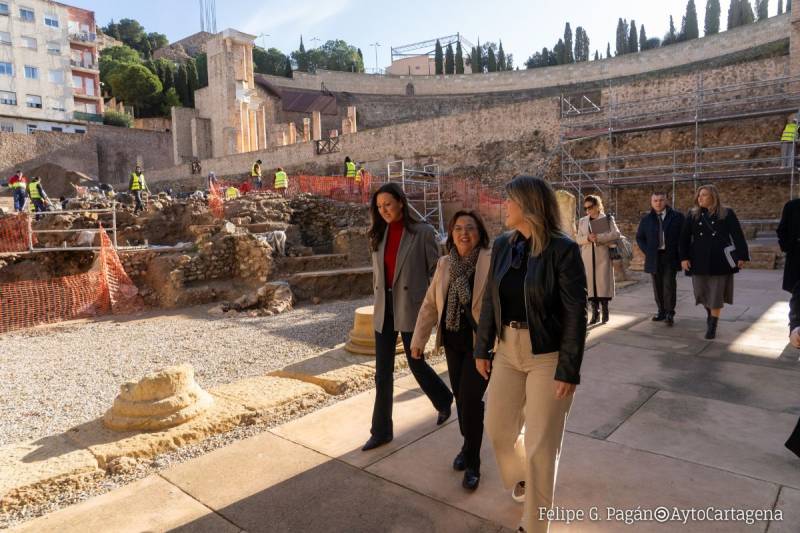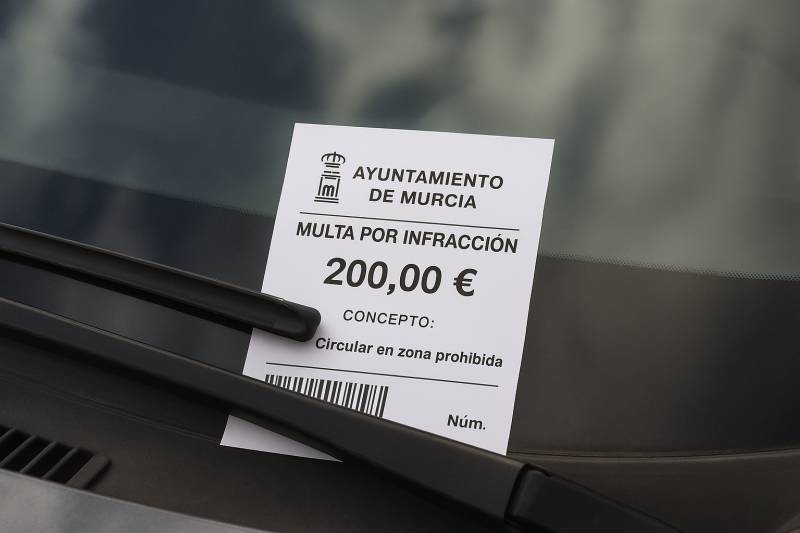

- EDITIONS:
 Spanish News Today
Spanish News Today
 Murcia Today
Murcia Today
 Alicante Today
Alicante Today
Date Published: 28/11/2024
Murcia overtakes Madrid as gap between rich and poor widens
Murcia topped Spain’s salary inequality rankings in 2020 even as the average income grew

In 2020, Murcia overtook Madrid as the Spanish city with the highest income inequality among the country’s ten largest municipalities, according to a recent report by the Foundation for Applied Economic Studies (Fedea).
However, this seemingly grim statistic comes with a surprising twist: Murcia was the only major city where personal income per taxpayer increased that year, despite the economic challenges generated by the Covid pandemic.
The Fedea report analysed data from personal income tax records. It highlights that Murcia's Gini Index (a measure of income inequality) jumped almost 10% from 2019, reaching 0.565. This marked a significant shift, as Murcia climbed from seventh to first place in inequality among Spain's largest cities. Notably, other cities like Madrid, Málaga, Sevilla and Barcelona also saw the pay gap widen in the pandemic’s wake.
Despite the glaring difference between low and high earners, during 2020 average earnings in Murcia rose by 2.72%, meaning that workers took home – again, on average – 22,839 euros that year. This increase set Murcia apart from other major cities, many of which saw incomes decline.
The report also shed light on other areas within the Region of Murcia. Lorca ranked among the ten municipalities in Spain with the lowest per capita income, averaging just 15,002 euros per taxpayer. However, Lorca’s income still increased slightly, by 0.84%, during this period.
Molina de Segura, on the other hand, emerged as a leader in reducing income inequality. The municipality achieved an 11.29% decrease in its Gini Index, showcasing progress in balancing economic disparities.
Income trends in Spain
At a national level, the pandemic triggered an overall decline in average incomes across municipalities with populations of more than 50,000 residents. Personal income fell by an average of 3.63% per taxpayer, reflecting all too clearly the economic challenges of Covid. Nonetheless, the wealthiest municipalities retained their positions at the top of the income rankings.
Other Spanish municipalities in which income increased the most were Villareal (6.28%), La Coruña (3.28%), San Sebastián de los Reyes (1.94%), Lugo (1.75%), Torrent (1.69%) and Santiago de Compostela (1.28%).
Murcia was ranked sixth, followed by Malaga, Palma de Mallorca, Las Palmas and Alicante. In the year before the pandemic, however, the last three cities had higher average income than Murcia.
Pensions and housing
If we fast forward to the present day, Murcia’s average pension of 1,118.79 euros per month is currently the third lowest in Spain, falling 142 euros below the national average. Despite this, in November pension amounts in the Region actually rose by 5.55%, outpacing the national growth rate of 5.26%.
And in October, Murcia offered some of the most affordable housing options in the country. In Caravaca de la Cruz, buying a home required just 8% of average household income, among the lowest in Spain.
However, in Los Alcázares, this figure rose to 21%, the highest in the Region.
Landlords also did well last October, as most saw their rental profits grow to 6.5%, well above the average in Spain (5.87%).
Meanwhile, tenants in the Region spent about 27.6% of their income on rent, below the national average, highlighting relatively affordable living costs in Murcia.
In other news: Bus strikes go ahead in the Region of Murcia this week
Image: Freepik
staff.inc.and
Loading
Sign up for the Spanish News Today Editors Roundup Weekly Bulletin and get an email with all the week’s news straight to your inbox
Special offer: Subscribe now for 25% off (36.95 euros for 48 Bulletins)
OR
you can sign up to our FREE weekly roundup!
Read some of our recent bulletins:
Discount Special Offer subscription:
36.95€ for 48 Editor’s Weekly News Roundup bulletins!
Please CLICK THE BUTTON to subscribe.
(List price 3 months 12 Bulletins)
Read more stories from around Spain:
Contact Murcia Today: Editorial 000 000 000 /
Office 000 000 000

































